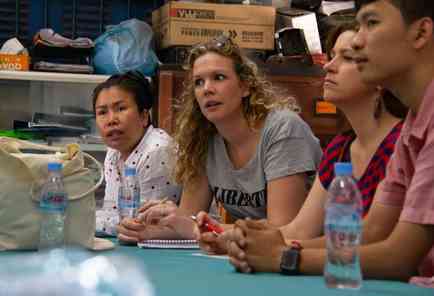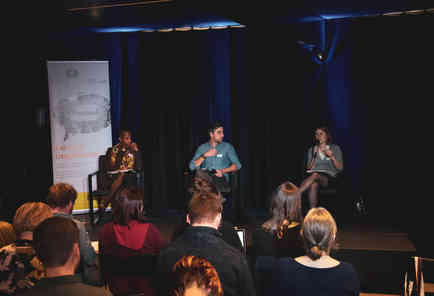Visiting Rwanda
In March we receive our friends from Rwanda and Cambodia for the international learning week on gender and education. To prepare for this exchange, colleague Soetkin went to Rwanda together with Lien Van Eecke, teacher educator at VIVES University of Applied Sciences in Kortrijk and member of the eNSPIRED working group on gender, where they became acquainted with education specialists on site. The journey and the contrast between the two educational systems left a lasting impression on Lien. Read all about it in this travelogue.
Gender in the classroom
What is socially acceptable for a biologic sex determines the expectations of our environment and influences various aspects of our lives. Gender stereotypes such as 'girls wear pink' and 'boys don't cry' are still common language. Together with eNSPIRED, we are examining gender issues this school year. We search globally for frameworks, inspiring practices or models that we include as inspiration for teacher trainings in Belgium. Because no matter how much we think our country is doing well, there is still a lot of room for improvement.
Gender in Belgium
On the one hand, we tell our students they can be who they want to be regardless of their gender, but at the same time, our behaviour as a teacher encourages clichés that confirm gender inequality. Belgium does not have a gender-responsive system that is part of the teacher training curriculum to teach them how to deal with gender differences and gender stereotypes. In Rwanda, they face similar problems, but they do not focus exclusively on the challenges and look for solutions. The introduction of a gender-responsive system in teacher training is already an inspiring success!
Overcoming barriers in Rwanda
During our visit to Rwanda, it quickly became clear how important the development of a gender-responsive toolkit from FAWE and VVOB is for education. It is a real revelation for Rwandan school leaders and subject teachers. Thanks to the toolkit, the awareness rose that girls were unconsciously but always in second place in the classroom. That's why teachers now involve students in the story through gender clubs. Boys and girls work closely together with extra attention to leadership by women. Through Tuseme (= Speak out) clubs, girls even make their voices heard in local politics, where they strive for equality and the right to education in their community.
Much needed change
In Belgium, there is no uniform gender policy in teacher training, with due consequence. Already in early childhood education, you notice that boys and girls are by no means equal. The efforts of university colleges individually confirm the need for a comprehensive policy on gender-responsive pedagogy across all areas of teacher education. It is, therefore, our task to turn inspiration from all over the world into practice.
Help build tomorrow's education as a teacher, teacher trainer or school leader and discover inspiring practices from Rwandese and Cambodian educational experts. Come to the eNSPIRED learning week on March 20 and 21, meet specialists from Rwanda and Cambodia and be more gender-responsive in class!
Article and video report by Lien Van Eecke, teacher educator at VIVES University of Applied Sciences

